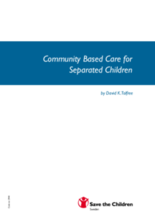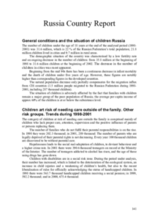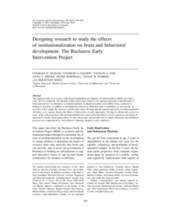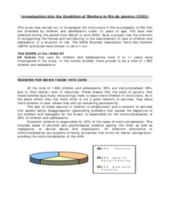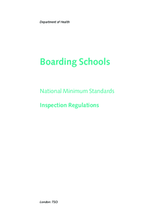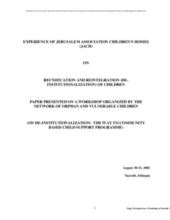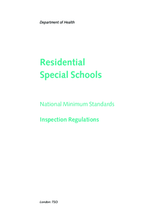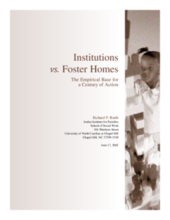Displaying 1461 - 1470 of 1510
A paper discussing the shortcomings of systems in which separated children are placed into residential/ institutional forms of care. It also considers community-based and some other forms of care as alternative approaches to preventing unnecessary separation of children from their families.
Country report of Russia on the situation of children in residential care in anticipation of the Second International Conference on Children and Residential Care: New Strategies for a New Millennium, to be held in Stockholm 12 – 15 May 2003.
An overview of the largest longitudinal investigation of institutionalized children less than 2 years old ever conducted.
This research study provides statistical information on institutional care of children under the age of 12 in Rio de Janeiro, Brazil. Interviews with institutions and children are conducted, and reasons for separation from family, length of time in care, status of family relationship, religious orientation and financial support of the institutions are highlighted.
A statement, by UNICEF for the Stockholm Conference on Residential Care, which recommends a move away from institutional care for children and offers the ‘protective environment’ framework as a solution which encourages protective legislations and policies, public debate, government commitment and the need to listen to the children. The statement includes lessons learned about the issue of children without family care and recommendations for reform.
A set of standards for ensuring welfare protection at boarding schools. It includes standards and outcomes that outline a school’s welfare policies and procedures, organization and management, welfare support to boarders, staffing, and premises.
This paper provides a guideline for the implementation of reunification and reintegration programs for agencies providing institutional care for orphans. It outlines the different strategies and activities an organization in Ethiopia used to transition from institutional care to community-based childcare projects.
A set of standards for ensuring the welfare protection of children in residential special schools. It includes standards and outcomes relating to children’s rights, protection, and care, as well as staffing, organization and management.
A review of institutional care and family-centered care with a discussion of both positive and negative aspects of group care. This review paper is primarily focused on showing the inefficacy of group care and recommending other forms of care such as kinship care and even foster care as options that are more cost effective and better for children’s development.
A set of standards for ensuring positive welfare, health and education in children’s homes. It includes standards and outcomes on planning for care, quality of care, complaints and protection, care and control, environment, staffing, management and administration, and specialist provision.

